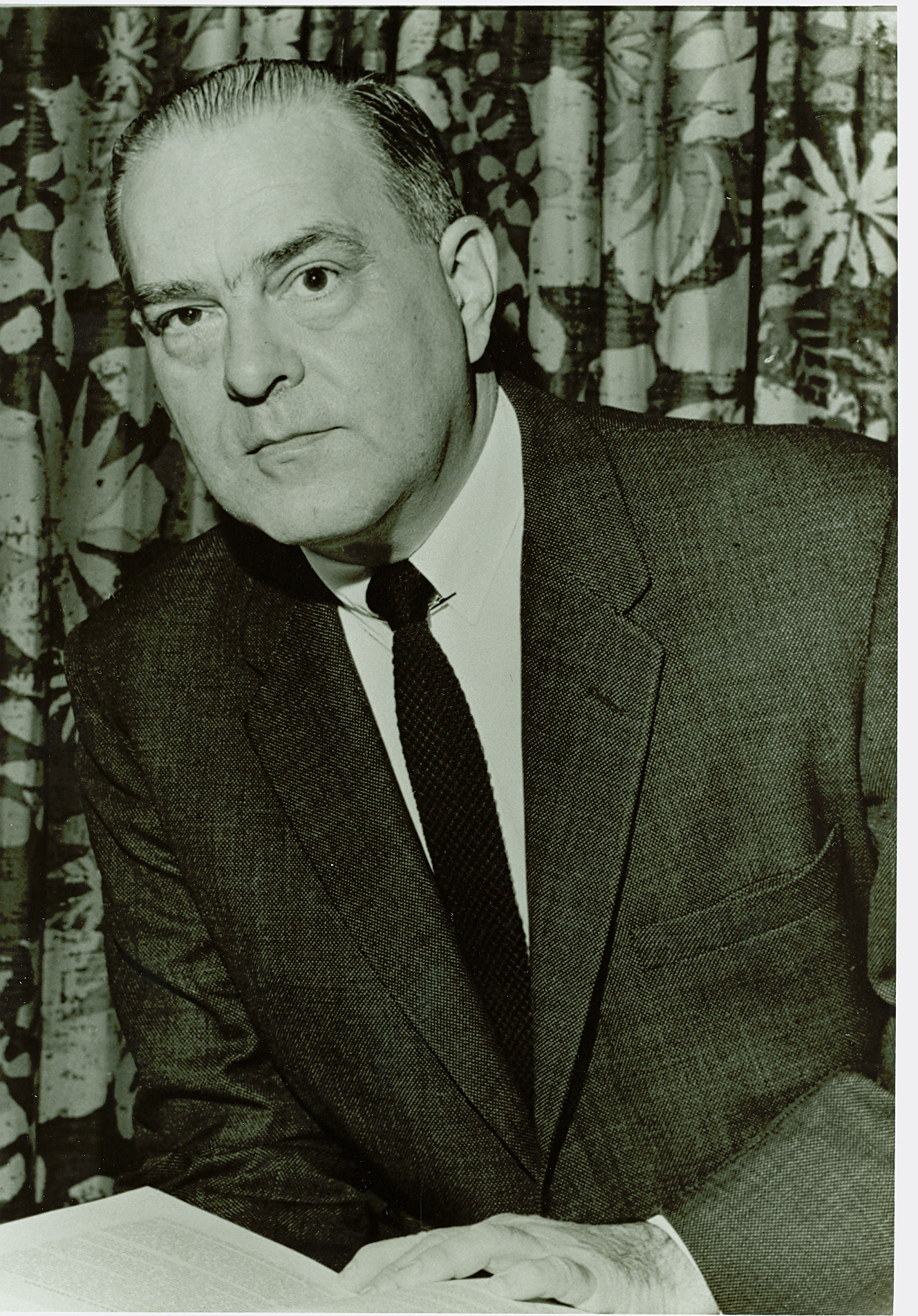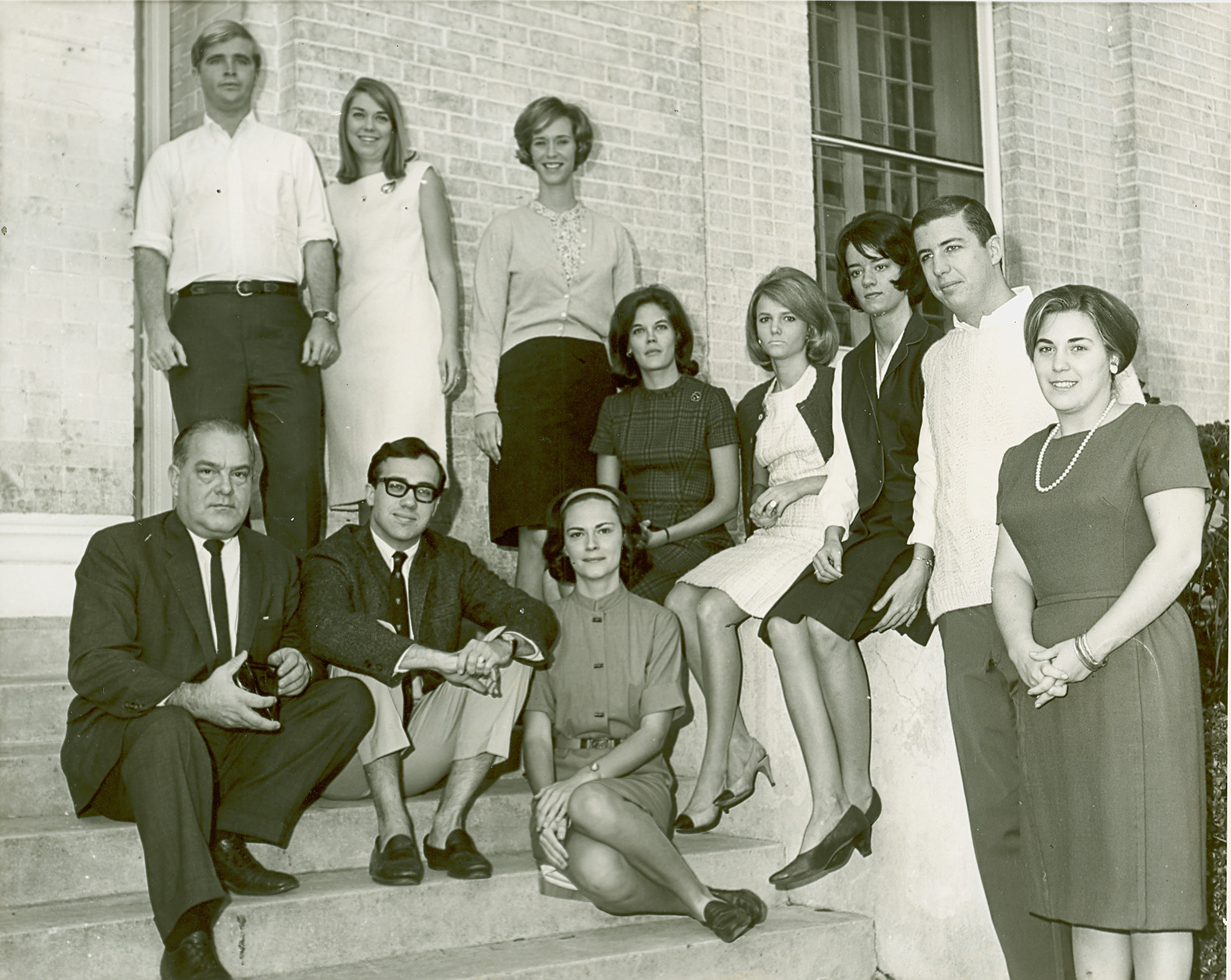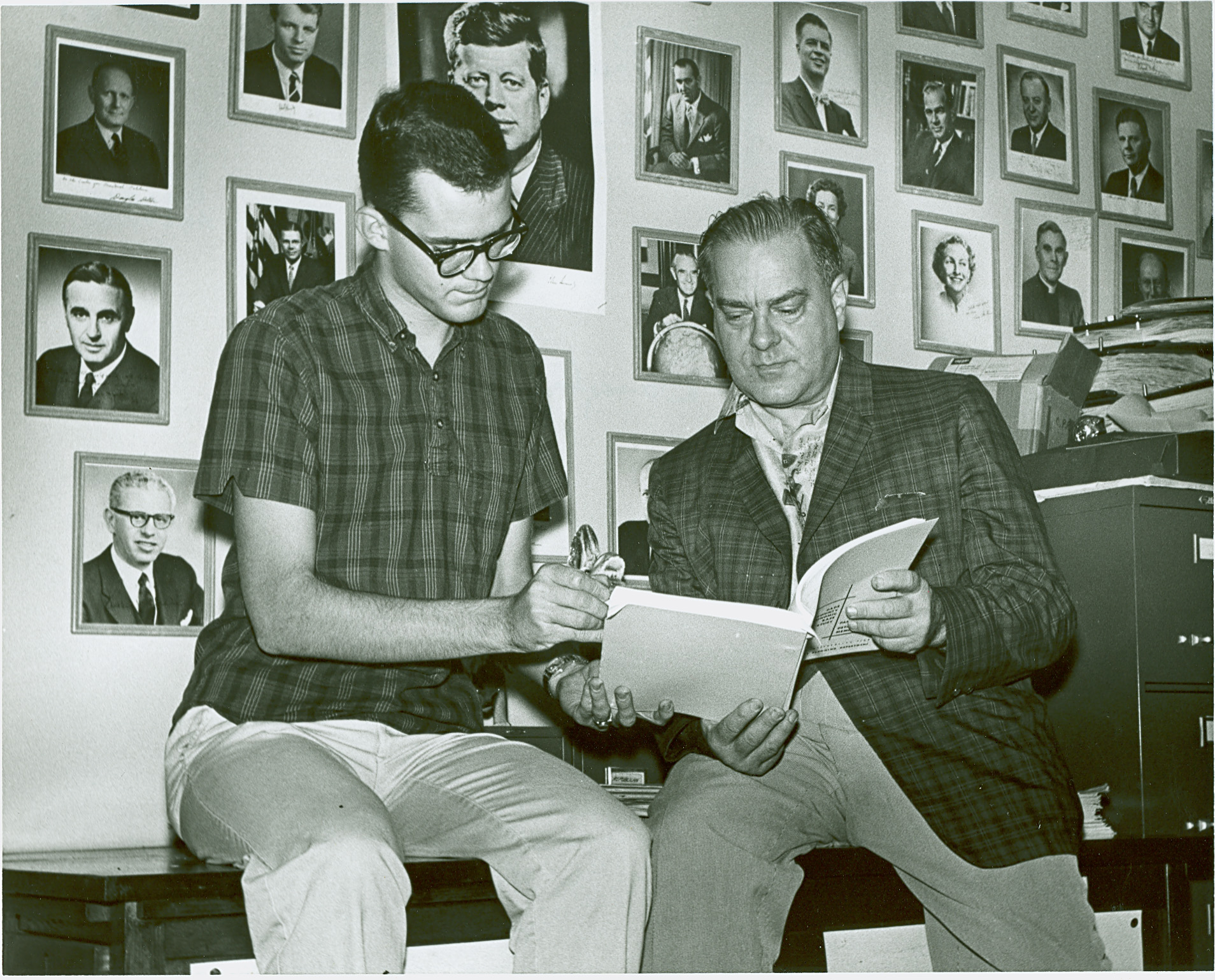
Paul Fredrick Douglass (1904-1988):
"Political Scientist and Educational Leader"
 Born on November 7, 1904,
political scientist Paul Frederick Douglass grew up in Corinth, New York.
He later moved, first to Connecticut, where he received his Artium
Baccalaureatus degree from Wesleyan University, and then to Ohio, where
he graduated with a Ph.D. in 1931 from the University of Cincinnati as a
Taft fellow in government and public law. He then attended the University of
Berlin for two years as a fellow in economics and jurisprudence and
submitted to the Vermont Bar in the late 1930s.
Born on November 7, 1904,
political scientist Paul Frederick Douglass grew up in Corinth, New York.
He later moved, first to Connecticut, where he received his Artium
Baccalaureatus degree from Wesleyan University, and then to Ohio, where
he graduated with a Ph.D. in 1931 from the University of Cincinnati as a
Taft fellow in government and public law. He then attended the University of
Berlin for two years as a fellow in economics and jurisprudence and
submitted to the Vermont Bar in the late 1930s.
Douglass worked his way through
school, holding the positions as reporter and educational editor for the
Cincinnati Post from 1926 to 1928. In 1933, the Methodist Church in
Poultney, Vermont called Douglass to pastor their church. He simultaneously
held this position, along with the office of Chairman of the House Committee
on Education until 1943. Upon his resignation from both offices, Douglass
was nominated to be the president of the American University by a special
committee of the Board of Trustees. In his first month at the University, he
took on the task of interviewing all the seniors, administering the graduate
record examination, revitalizing the school’s chapel programs, and preaching
to the students during Sunday services. Douglass continued to lead the
Institution, even though the turbulent war years. He became increasingly
active in World causes, helping to establish the United Nations and aid in
the process of creating refugee relief programs and international
organizations. In 1951, Douglass decided against reappointment to the
presidency, and instead spent his time as advisor to the South Korean
President Syngman Rhee for three years.

Following his advisement to President Rhee, Douglass came to Rollins. There he became the Director of the Rollins’ College Center for Practical Politics. He remained at the College for fifteen years, during which time he took an active role in the study of campus subculture and academic achievement. During this time, he also authored several books, including Wesleys at Oxford (1953), Irving Babbitt and Paul Elmer More (1963), and Six Upon the World (1954). In 1971, Douglass chose to resign, with those close to him stating that the resignation came because he had become, “increasingly unhappy with the happenings of the College and did not go along with Rollins’ youthful president Dr. Jack Critchfield on certain subjects.”[1] Upon his retirement, he made plans to author several books. Instead, he moved to Washingon, where he acted as General Counsel to the postmaster’s league in Washington.
In 1973, Rollins College awarded Douglass with the Rollins Declaration of Honor for his distinguished career in government, journalism, and education. He passed away with such an honor just a few years later, on August 7, 1988.
- Alia Alli
[1] “Dr. Douglas Resigns From Rollins Staff,” Cupboard News, May 10, 1971.